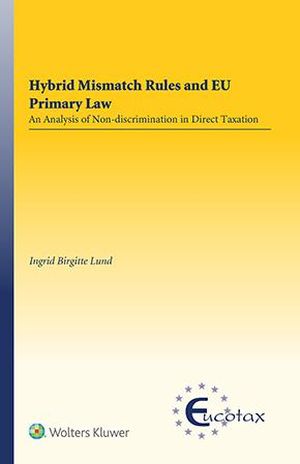
Hybrid Mismatch Rules and EU Primary Law is a book exploring whether the transposed national hybrid mismatch rules, as enacted based on Articles 9, 9a, and 9b of the EU Anti-Tax Avoidance Directive (ATAD), infringe on taxpayers’ right to free movement under the fundamental freedoms and clarifies the extent of the protection these freedoms afford in direct tax cases. Hybrid mismatch rules obligate Member States to alter the tax treatment for cross-border transactions to prevent non-taxation or double non-taxation which may occur when a transaction is not only deductible for the payer but also deductible or not taxed as income for the payee.
What’s in this book:
The author’s in-depth analysis extends to the following considerations:
Acknowledging the conflict within international tax law between competition and cooperation – including the extent to which a taxpayer covered by the hybrid mismatch rules, by invoking the fundamental freedoms, can claim the benefits that hybrid mismatch rules deprive them of – the answers and clarifications in this deeply informed book contribute to foreseeability and legal certainty for both corporations and governments. With it as a guide, practitioners and policymakers will effectively apply hybrid mismatch rules, gain a deeper understanding of how these regulations influence taxpayers and their rights to free movement, and recognize how fundamental freedoms can be utilized for taxpayer protection.